Everyone has a story to tell; each one of us writes poetry – some, without even realising. That stream of consciousness that runs in our veins? It’s poetry waiting to be written. We believe in the power of words, and that power is what urged us to set up PoetsIN.
Because of those inner streams we are compelled to bring you our regular interview feature, Writer Profiles. This week we’re talking to Bestselling Author John Marrs.
Marrs is a former journalist and now author of worldwide No.1 bestselling thrillers When You Disappeared; The One; The Good Samaritan and Welcome To Wherever You Are. His books not only sell well, but they get under your skin in deliciously uncomfortable ways.
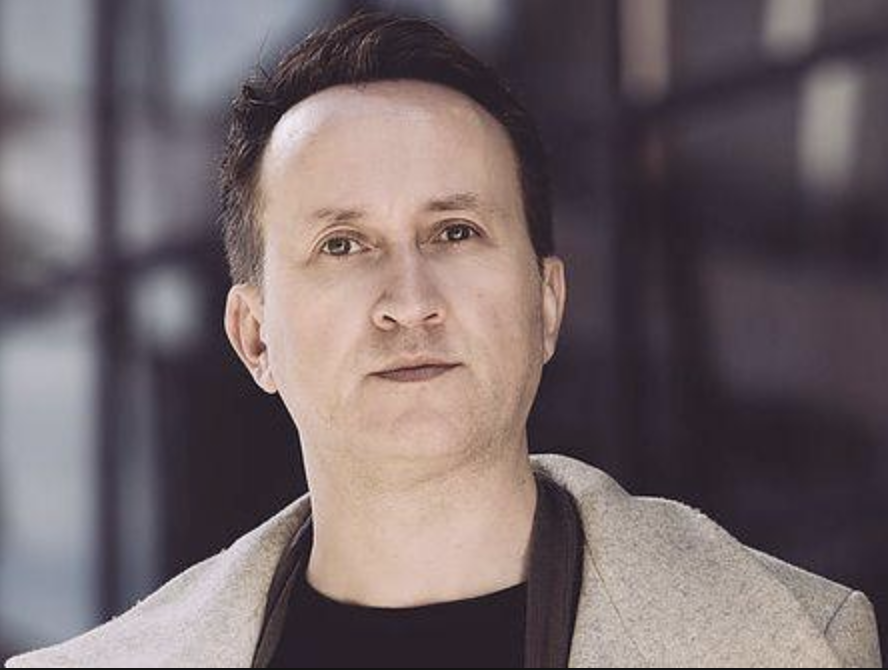
Bestselling Author John Marrs
Who are you and what do you do?
My name is John Marrs and I’m a full-time author. It still looks funny when I type that out and read it back to myself as none of this was supposed to happen. I was a journalist who wrote books for fun. Then somehow, it became a career.
What is your relationship with words and how has that evolved?
I’ve always enjoyed reading and writing, but I wasn’t one of those people who have spent a lifetime accumulating short stories and unpublished work in the back of drawers. In fact, once my education was complete, I never wrote anything fictional again until 2011 when I started my debut self-published novel, The Wronged Sons. Instead, I’d been busy carving out a career for myself as a journalist, later specialising in interviews with actors, personalities and musicians.
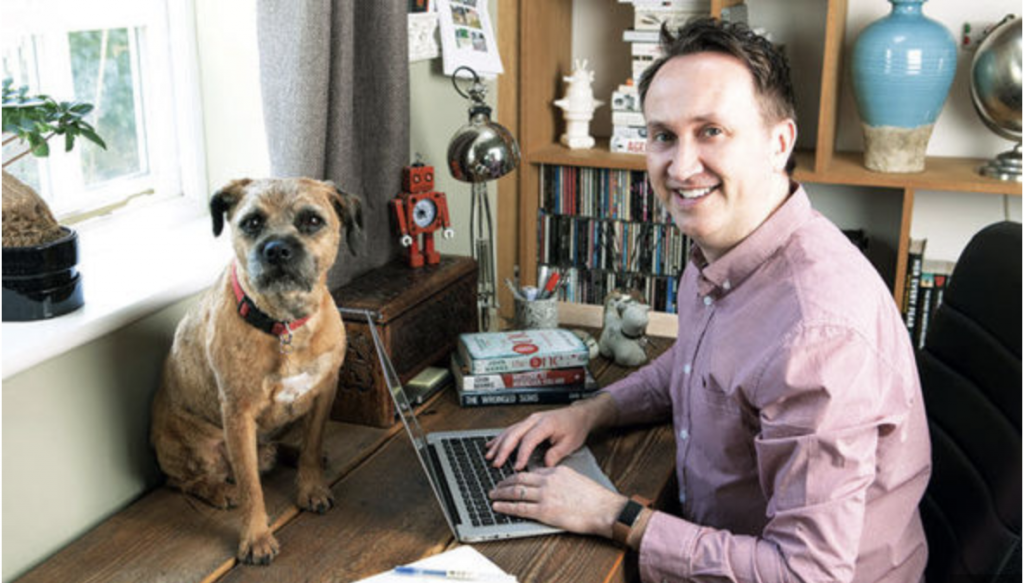
John pictured with his assistant
How long have you been writing, what is your favourite style of writing and why?
I began as a journalist when I completed my A-levels and worked my way up through local newspapers to nationals and magazines, finally going freelance around ten years ago. I decided to try my hand at writing a novel, and when no agent or publisher was interested, I self-published instead. To my surprise, I started to sell and sell well. Then two of my three books were later picked up by two different traditional publishers and I find myself now with separate deals to write three new novels between now and 2021. Early on, I decided psychological fiction was the genre I enjoyed writing the most. It offers plenty of scope to explore darker, more complex issues which I find much more rewarding to write.
‘The One’ is a psychological thriller that takes Big Brother to a whole new, and disturbing level. Seriously, what put the idea for it into your head?
In 2015, my partner and I were planning our wedding for the following year in New York’s City Hall as it’s a city we have both visited before many times and that we love. I was working in London at the time and one evening on my way home, I was on the escalator heading for my tube train, people-watching. I was looking at the folk on the other side thinking how lucky I was to have found my match. Then I began wondering how much easier it would be if there was something inside us all that matched us with just one person in the world. And if we came into contact with them, we just knew on instinct, they were the perfect person for us. I started writing The One the next day.
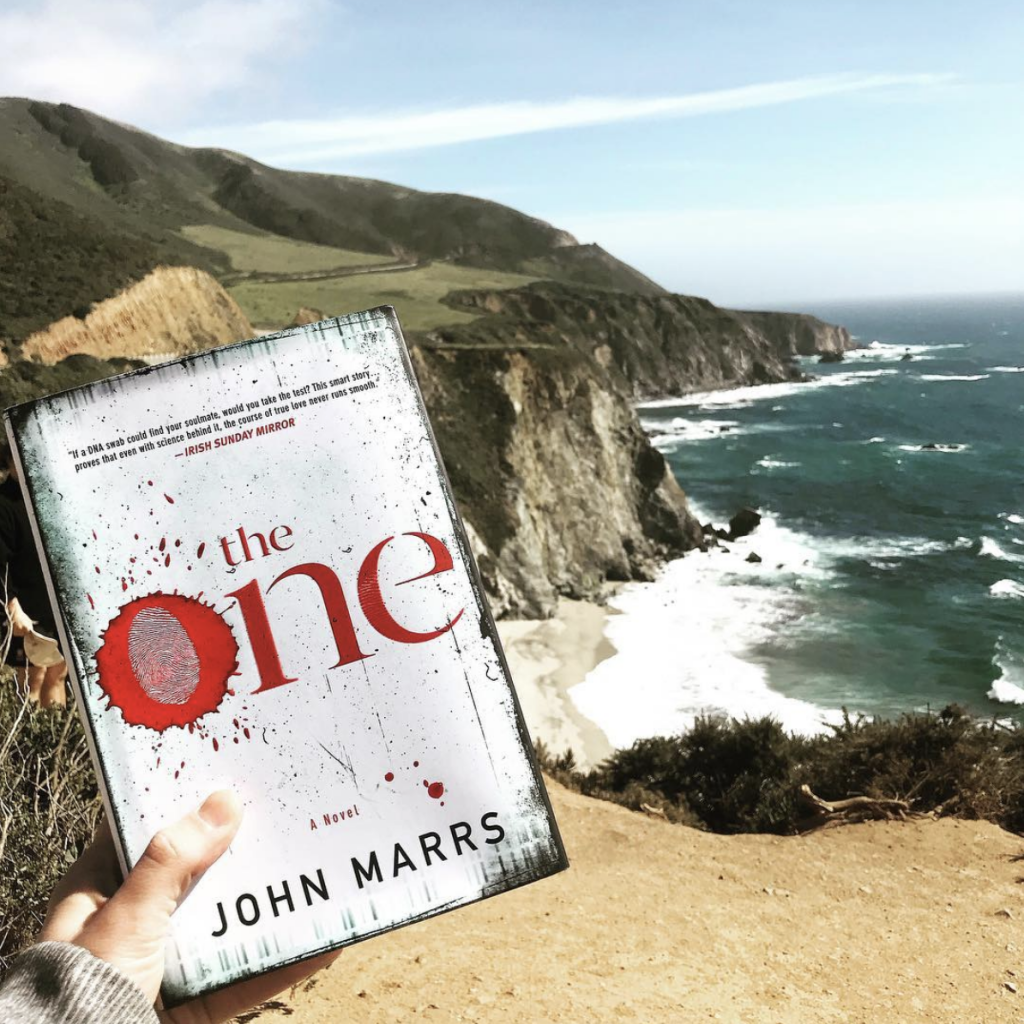
Click the pic to buy The One on Amazon
Many of us within this group have experienced times where writing has helped us overcome times of pain, describe the first time you realised the true of power of words.
While working on a local newspaper in Northamptonshire, I was asked to interview the family of a little boy who had died. He must have been about five years of age. He’d faced many medical issues during his short life and through appeals in our paper, readers, his friends and neighbours had raised thousands of pounds to make his life that bit easier with specialist equipment and a holiday. During our interview, his parents thanked me and the newspaper for how much our words had helped raise awareness of his issues and helped to bring him such pleasure in his final year.
Describe your writing process, from how a book begins with you to the end.
Ideas come to me anywhere. I’ll type them into my phone or write them in a notebook and keep developing them until they’re fully formed. Then I’ll start writing. For the first 60,000 words, I aim to write 10,000 words a week. That’s 2,000 words per working day which is very doable. I just want to get the story out of my head and onto a screen so that first draft is usually pretty rubbish! Then there will be four or five re-writes, I’ll allow a select few people to read it for feedback before it is sent to my editor. Then begins the official round of re-writes and copy edits before the final version appears. And once I have read the final proof, I’ll never read that book again. I’ll listen to it when it eventually comes out on Audiobook, but I won’t read it again.
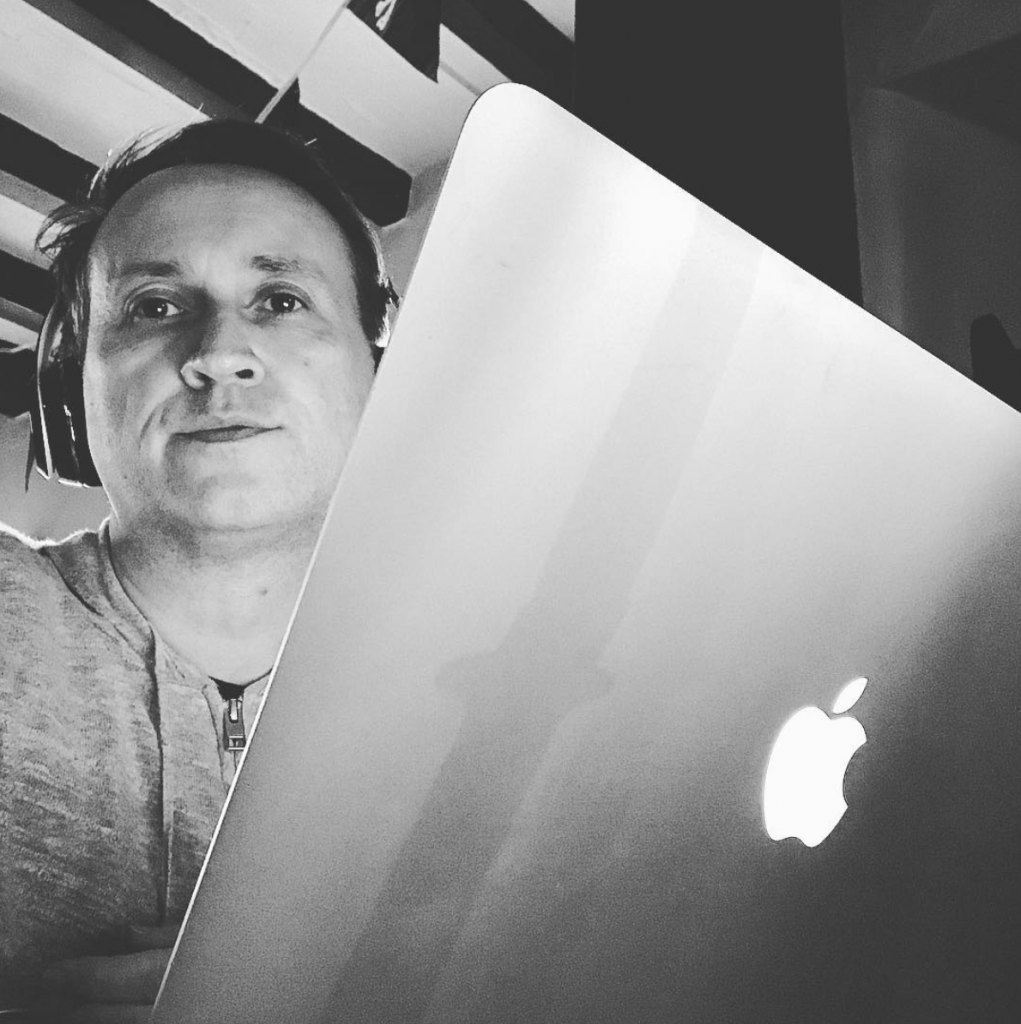
Read on for John’s writing process
We are founded on a bedrock of writing easing mental health, with some finding the darkest times are the most creative. Where do you stand on this?
I believe if you find a mechanism that works for you, then you should do whatever it takes to get you through your suffering. I’m fortunate in that I have never had to live with mental health problems, but I have had close friends who have suffered and been in great pain with them. I have had dark times – the break-up of my first marriage and the loss of my father – but these have been temporary and only much, much later, did I use them in my stories and found it cathartic. But at the time, I didn’t use writing to help me through them.
Many writers love to read. What is your favourite book and why?
Finding time to read is always a problem. If I’ve been at my desk in front of a computer all day, the last thing I want to do is then spend another two hours immersed in someone else’s words. It can also be quite soul destroying too when you read a book and realise how much better it is than what you are trying to create! At present, I’m more of an Audiobooks man. I’ll listen to one as I’m walking the dog, cutting the lawn or at the gym. I don’t have just one favourite book, more of a collection I’d take with me to a desert island. My all-time most-loved books include Alex Garland’s The Beach, Carlos Ruiz Zafon’s The Shadow Of The Wind, Peter Swanson’s The Kind Worth Killing, Bret Easton Elli’s American Psycho and Paul Theroux’s The Mosquito Coast.
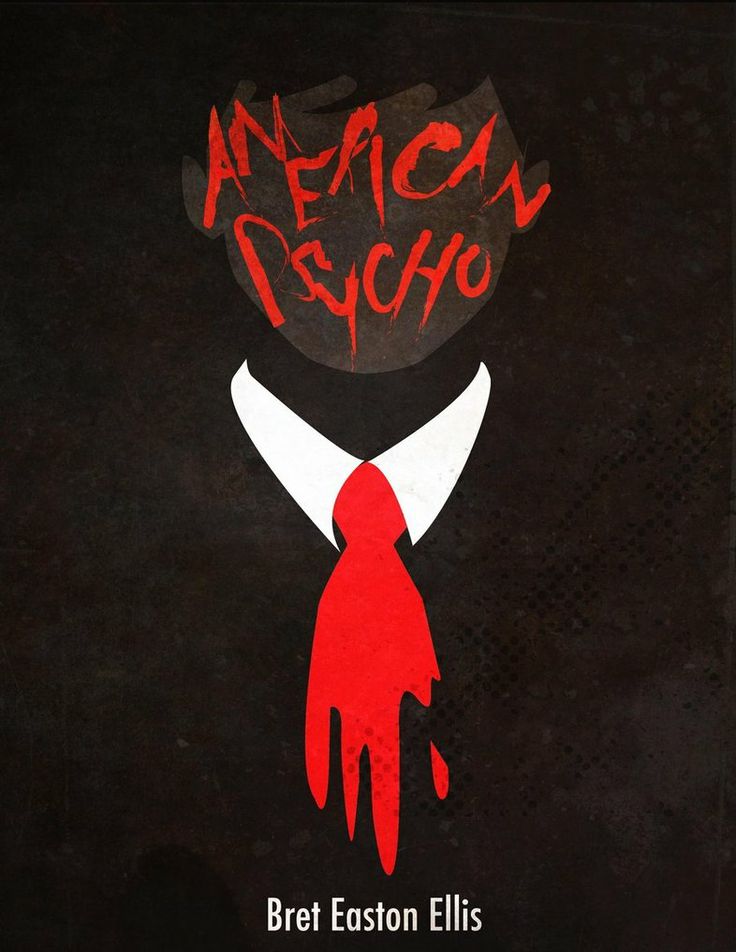
American Psycho rates as one of Marrs’ favourite books
If you had to be remembered for just one of your books, which one would it be?
When You Disappeared. I doubt I’ll be able to write a book as ambitious and as successful as that one again. My others have all been amazing sellers, but I won’t be able to top that one.
Is there a saying or quote that sums you up and why?
Aldous Huxley wrote: “Our goal is to discover that we have always been where we ought to be. Unhappily we make the task exceedingly difficult for ourselves.”
I think there have been times I’ve made the journey hard for myself, but then there would be no sense of satisfaction if I’d made life easy for myself, would there?
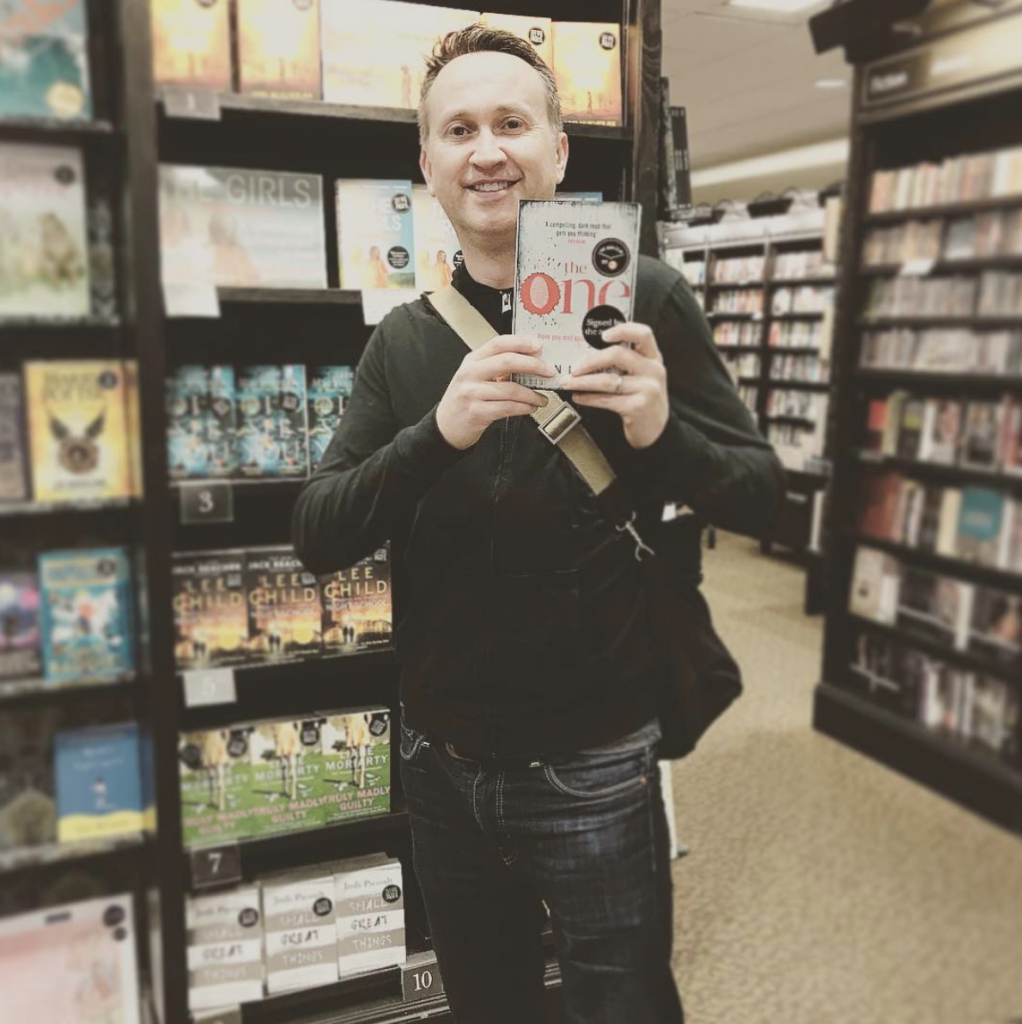
The One is a bestseller for a reason
Writer’s block, real or a myth?
Real, I believe, but thankfully, I‘ve yet to suffer from it. My theory is to just keep writing, day in, day out, no mater how hard it is. Even if it’s a thousand words of rubbish, there might just be a sentence or a plot twist in it that makes it all worthwhile.
Your latest book, The Good Samaritan is incredibly dark and twisted and has stayed with me ever since I read it. How difficult was it to touch on a subject that is so sensitive (and often stigmatised) and utilise it for the storyline of your novel?
Suicide is always going to be a polarising subject to write about, but that doesn’t mean it should be avoided. Samaritan wasn’t an easy book to write. I had to dig deep for this one, more so than any other novel I’ve written and especially because it was in first person. I have written about it from the perspective of someone who can see no way out other than to end their own life to how it affects those they leave behind. I hope I have done the subject justice.
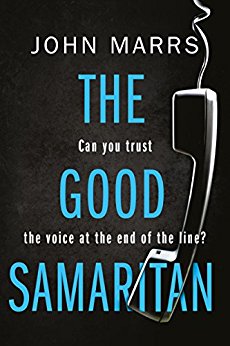
The Good Samaritan – Click the pic to buy
Finish this sentence: Words are the epitome of…
…expression, not repression.
What’s next for John Marrs?
Her Final Move is my fifth novel, and my first detective thriller, which is set for release in November 2018. I’m currently knee-deep in rewrites of book six, which is due for release next year.
Thanks to John for taking time out from his busy schedule to talk to us. You can find out more about him on his social media. On Twitter he is @johnmarrs1 on Facebook he is johnmarrsauthor on Instagram he is johnmarrs.author and of course, on his website johnmarrsauthor.co.uk
Please follow and like us:
Everyone has a story to tell; each one of us writes poetry – some, without even realising. That stream of consciousness that runs in our veins? It’s poetry waiting to be written. We believe in the power of words, and that power is what urged us to set up PoetsIN.
Because of those inner streams we are compelled to bring you our regular interview feature, Writer Profiles. This week we’re talking to Bestselling Author John Marrs.
Marrs is a former journalist and now author of worldwide No.1 bestselling thrillers When You Disappeared; The One; The Good Samaritan and Welcome To Wherever You Are. His books not only sell well, but they get under your skin in deliciously uncomfortable ways.
Bestselling Author John Marrs
Who are you and what do you do?
My name is John Marrs and I’m a full-time author. It still looks funny when I type that out and read it back to myself as none of this was supposed to happen. I was a journalist who wrote books for fun. Then somehow, it became a career.
What is your relationship with words and how has that evolved?
I’ve always enjoyed reading and writing, but I wasn’t one of those people who have spent a lifetime accumulating short stories and unpublished work in the back of drawers. In fact, once my education was complete, I never wrote anything fictional again until 2011 when I started my debut self-published novel, The Wronged Sons. Instead, I’d been busy carving out a career for myself as a journalist, later specialising in interviews with actors, personalities and musicians.
John pictured with his assistant
How long have you been writing, what is your favourite style of writing and why?
I began as a journalist when I completed my A-levels and worked my way up through local newspapers to nationals and magazines, finally going freelance around ten years ago. I decided to try my hand at writing a novel, and when no agent or publisher was interested, I self-published instead. To my surprise, I started to sell and sell well. Then two of my three books were later picked up by two different traditional publishers and I find myself now with separate deals to write three new novels between now and 2021. Early on, I decided psychological fiction was the genre I enjoyed writing the most. It offers plenty of scope to explore darker, more complex issues which I find much more rewarding to write.
‘The One’ is a psychological thriller that takes Big Brother to a whole new, and disturbing level. Seriously, what put the idea for it into your head?
In 2015, my partner and I were planning our wedding for the following year in New York’s City Hall as it’s a city we have both visited before many times and that we love. I was working in London at the time and one evening on my way home, I was on the escalator heading for my tube train, people-watching. I was looking at the folk on the other side thinking how lucky I was to have found my match. Then I began wondering how much easier it would be if there was something inside us all that matched us with just one person in the world. And if we came into contact with them, we just knew on instinct, they were the perfect person for us. I started writing The One the next day.
Click the pic to buy The One on Amazon
Many of us within this group have experienced times where writing has helped us overcome times of pain, describe the first time you realised the true of power of words.
While working on a local newspaper in Northamptonshire, I was asked to interview the family of a little boy who had died. He must have been about five years of age. He’d faced many medical issues during his short life and through appeals in our paper, readers, his friends and neighbours had raised thousands of pounds to make his life that bit easier with specialist equipment and a holiday. During our interview, his parents thanked me and the newspaper for how much our words had helped raise awareness of his issues and helped to bring him such pleasure in his final year.
Describe your writing process, from how a book begins with you to the end.
Ideas come to me anywhere. I’ll type them into my phone or write them in a notebook and keep developing them until they’re fully formed. Then I’ll start writing. For the first 60,000 words, I aim to write 10,000 words a week. That’s 2,000 words per working day which is very doable. I just want to get the story out of my head and onto a screen so that first draft is usually pretty rubbish! Then there will be four or five re-writes, I’ll allow a select few people to read it for feedback before it is sent to my editor. Then begins the official round of re-writes and copy edits before the final version appears. And once I have read the final proof, I’ll never read that book again. I’ll listen to it when it eventually comes out on Audiobook, but I won’t read it again.
Read on for John’s writing process
We are founded on a bedrock of writing easing mental health, with some finding the darkest times are the most creative. Where do you stand on this?
I believe if you find a mechanism that works for you, then you should do whatever it takes to get you through your suffering. I’m fortunate in that I have never had to live with mental health problems, but I have had close friends who have suffered and been in great pain with them. I have had dark times – the break-up of my first marriage and the loss of my father – but these have been temporary and only much, much later, did I use them in my stories and found it cathartic. But at the time, I didn’t use writing to help me through them.
Many writers love to read. What is your favourite book and why?
Finding time to read is always a problem. If I’ve been at my desk in front of a computer all day, the last thing I want to do is then spend another two hours immersed in someone else’s words. It can also be quite soul destroying too when you read a book and realise how much better it is than what you are trying to create! At present, I’m more of an Audiobooks man. I’ll listen to one as I’m walking the dog, cutting the lawn or at the gym. I don’t have just one favourite book, more of a collection I’d take with me to a desert island. My all-time most-loved books include Alex Garland’s The Beach, Carlos Ruiz Zafon’s The Shadow Of The Wind, Peter Swanson’s The Kind Worth Killing, Bret Easton Elli’s American Psycho and Paul Theroux’s The Mosquito Coast.
American Psycho rates as one of Marrs’ favourite books
If you had to be remembered for just one of your books, which one would it be?
When You Disappeared. I doubt I’ll be able to write a book as ambitious and as successful as that one again. My others have all been amazing sellers, but I won’t be able to top that one.
Is there a saying or quote that sums you up and why?
Aldous Huxley wrote: “Our goal is to discover that we have always been where we ought to be. Unhappily we make the task exceedingly difficult for ourselves.”
I think there have been times I’ve made the journey hard for myself, but then there would be no sense of satisfaction if I’d made life easy for myself, would there?
The One is a bestseller for a reason
Writer’s block, real or a myth?
Real, I believe, but thankfully, I‘ve yet to suffer from it. My theory is to just keep writing, day in, day out, no mater how hard it is. Even if it’s a thousand words of rubbish, there might just be a sentence or a plot twist in it that makes it all worthwhile.
Your latest book, The Good Samaritan is incredibly dark and twisted and has stayed with me ever since I read it. How difficult was it to touch on a subject that is so sensitive (and often stigmatised) and utilise it for the storyline of your novel?
Suicide is always going to be a polarising subject to write about, but that doesn’t mean it should be avoided. Samaritan wasn’t an easy book to write. I had to dig deep for this one, more so than any other novel I’ve written and especially because it was in first person. I have written about it from the perspective of someone who can see no way out other than to end their own life to how it affects those they leave behind. I hope I have done the subject justice.
The Good Samaritan – Click the pic to buy
Finish this sentence: Words are the epitome of…
…expression, not repression.
What’s next for John Marrs?
Her Final Move is my fifth novel, and my first detective thriller, which is set for release in November 2018. I’m currently knee-deep in rewrites of book six, which is due for release next year.
Thanks to John for taking time out from his busy schedule to talk to us. You can find out more about him on his social media. On Twitter he is @johnmarrs1 on Facebook he is johnmarrsauthor on Instagram he is johnmarrs.author and of course, on his website johnmarrsauthor.co.uk
admin